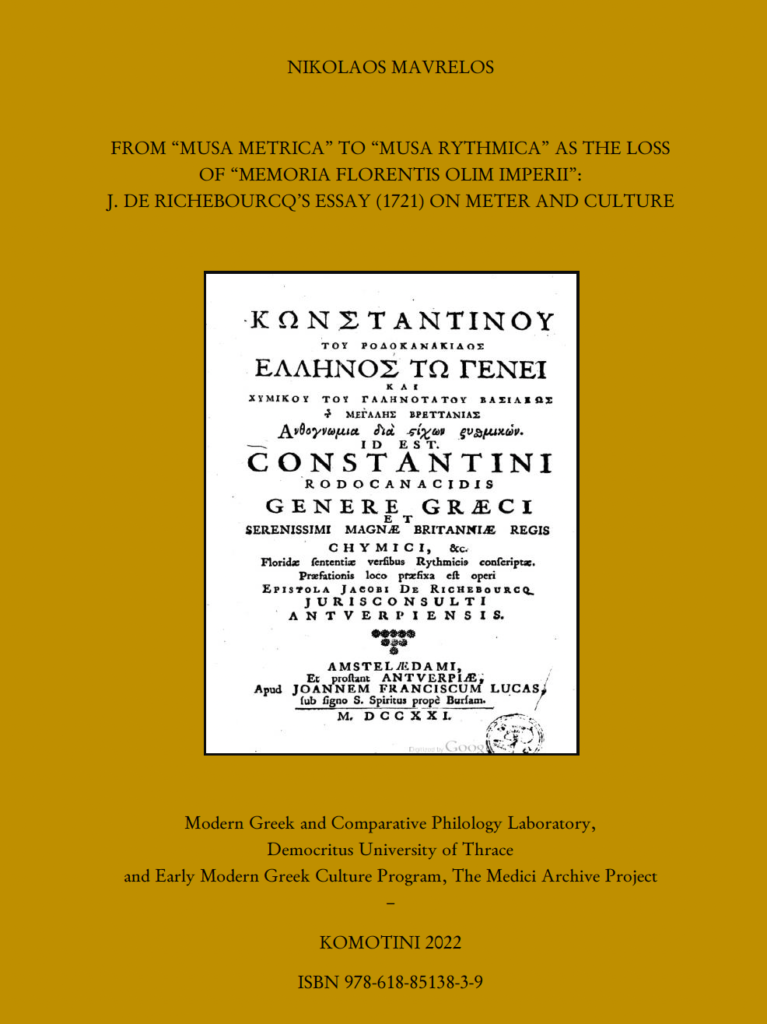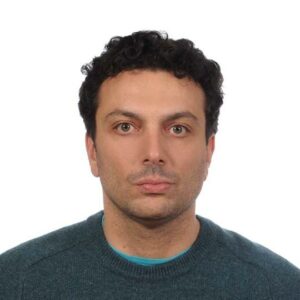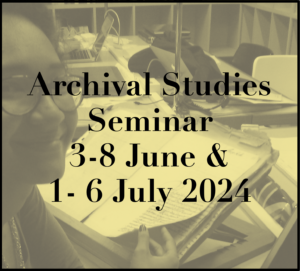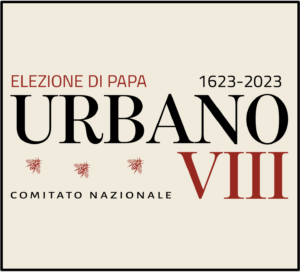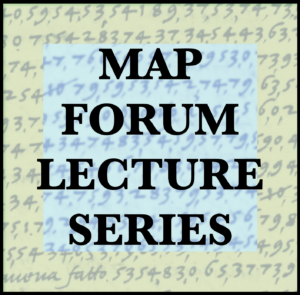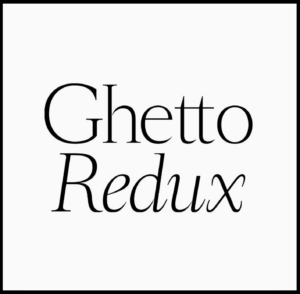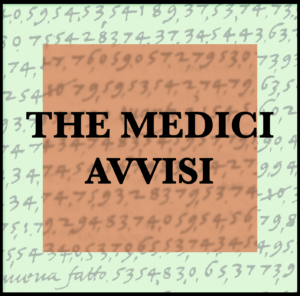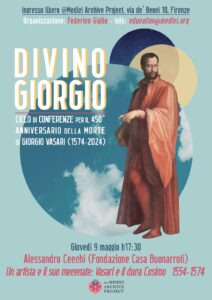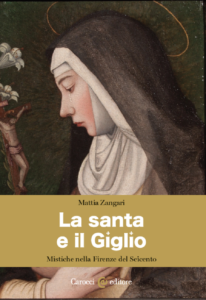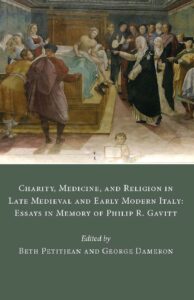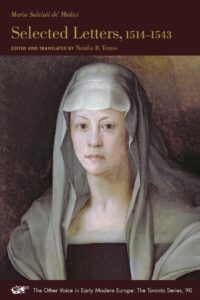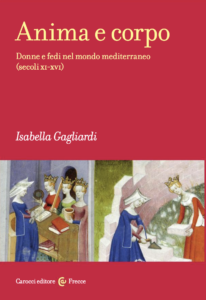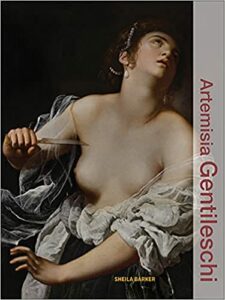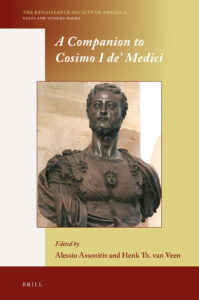Search Results for:
CALL FOR ESSAYS: Beyond the Sabbaths (1400-1650)
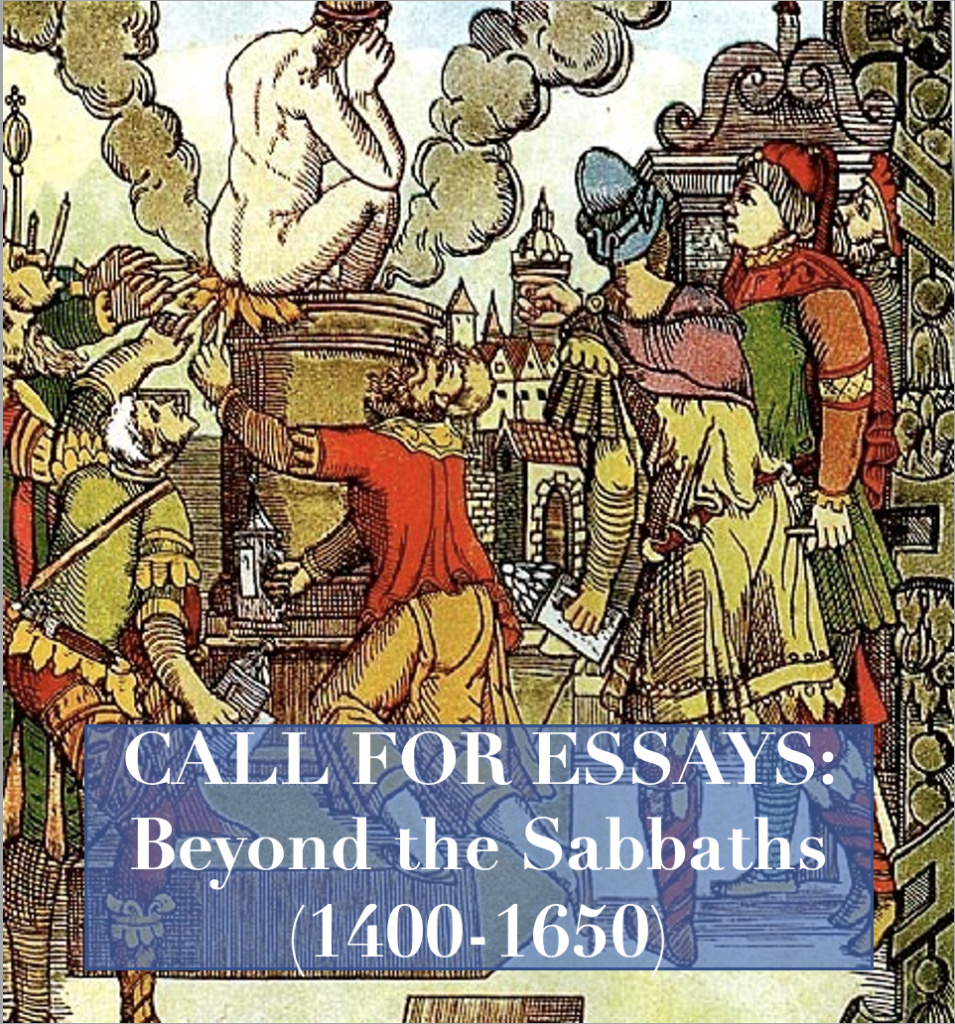
During the international conference held at the Medici Archive Project in September 2022 (entitled Beyond the Sabbath: Witchcraft and Its Stereotypes in Early Modern Europe), contributors examined witchcraft and witch hunts from a number of interdisciplinary fields of research. While the long-established antisocial stereotypes of witches were examined, new documentary material and theoretical perspectives underscored how the “fama di strega” played a protean role in early modern European societies. Aside from examining connections related to infamy, scapegoating, violence, sexuality, folklore, therapeutic magic, demonic possessions, and gender discrimination, conference speakers explored witchcraft in terms of diplomacy, history of emotions, religious syncretism, mental health practices, racial tensions, network analysis, anti-Renaissance theory, and public sphere impact. These new avenues of research have prompted Domizia Weber and Daniele Santarelli—conference organizers and co-editors of the volume—to expand the scope of this project, inviting paper proposals that address these themes and complement the already existing corpus of essays. The volume will be published with the Medici Archive Project Series with Harvey Miller/Brepols in 2024. To be considered, please send the following material by 1 August 2023 at education@medici.org: (1) full name, affiliation and email address; (2) paper title (15-word max); (3) abstract text (150-word max); and (4) short curriculum vitae (300-word max).
Medici on the Road (16-17 June 2022)
THE MEDICI ON THE ROAD
PALAZZO ALBERTI – 16-17 JUNE 2022
Program
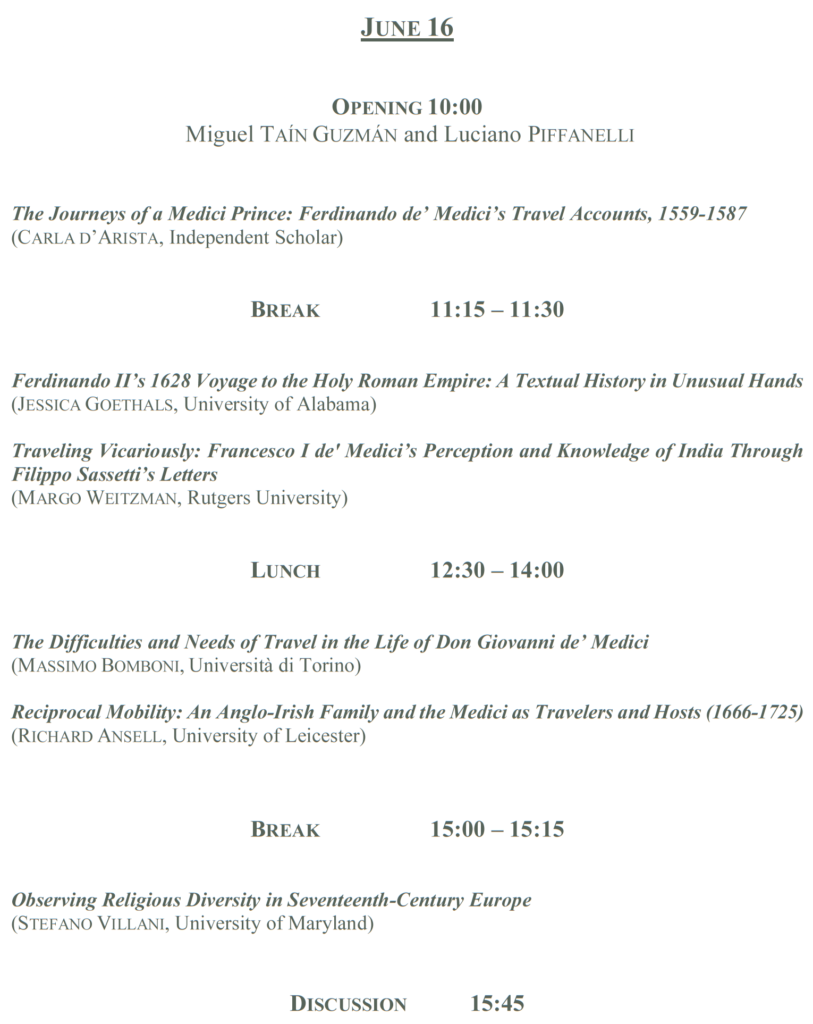
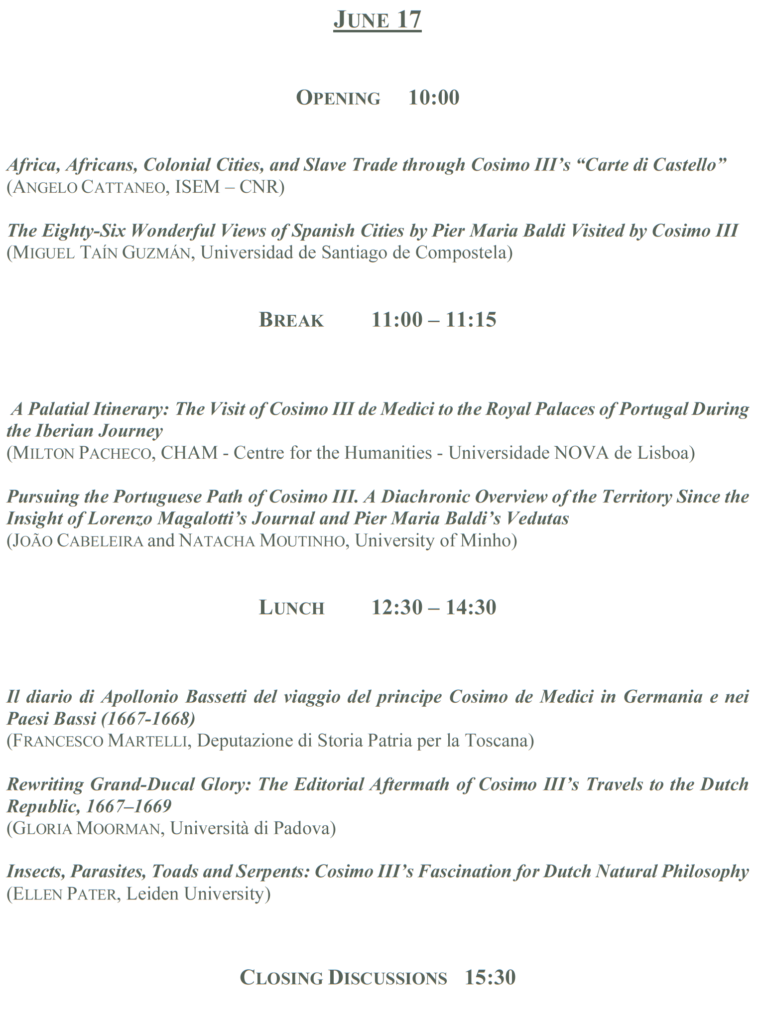

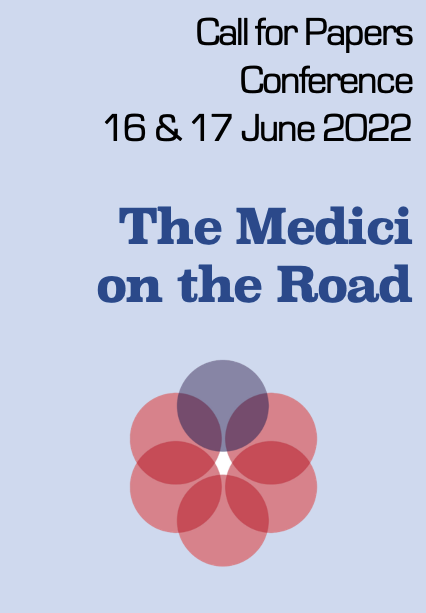
Whether for pleasure, exile, education, wedding, business, religious devotion, duress, or diplomacy, travel played a fundamental role in Medici history. From the exile of Cosimo the Elder in the Veneto to Gran Principe Ferdinando’s Venetian nights of debauchery, Prince Francesco’s internship at the Spanish Court, Prince Cosimo di Ferdinando II’s European tours, Prince Gian Gastone and Anna Maria Franziska’s honeymoon, and Grand Duchess Joanna of Austria’s pilgrimage to Loreto, many members of this family either chose or were forced to be on the road. Regardless of the specific reasons for leaving Florence, each trip constituted an important personal chapter in their lives as well as an opportunity to further family enterprises and, during the grand ducal period, reinforce state-building and consolidate diplomatic ties. An impressive corpus of surviving archival records—letters, account books, journals, diaries, avvisi, etc.—document this interpenetration between personal experiences and public spheres. This conference, the proceedings of which will be published, intends to investigate and bring to the fore a great number of themes, including but not limited to: time, routes, and costs of journeys; the personnel that accompanied the Medici; safety, risk and protection; material culture and agency; souvenirs and gift-giving culture; sightseeing and accommodations; religious pilgrimages and medical sojourns; the languages and literature of travel; maps and roads; reporting and mail; war and diseases; maritime travel; local and global networks; leisure and villeggiatura; survival strategies; local etiquette and global diplomacy; the protean geography of early modern Europe; preparations and conventions; Medici women traveling; death as a consequence of traveling; traveling without moving.
The organizers (Luciano Piffanelli and Miguel Tain Guzman) invite proposals for 25-minute unpublished papers in English or Italian. The conference will take place at Palazzo Alberti in Florence on 16-17 June 2022. To apply: please send an abstract (max 250 words) and a short bio (max 100 words) by 11 February 2022 to education@medici.org.
Meet the Interns (2022)
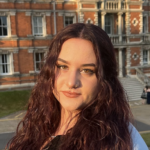
Alessia Gagliardi is a bachelor’s student of History of Art and Visual Culture and Comparative Literature and Culture at Royal Holloway University of London. Previous to her MAP Internship, she developed her knowledge of Fake News in the Avvisi written in Florentine Renaissance. In her upcoming dissertation, she will focus on how the Florentine society was mirrored by Art and Literature during the Renaissance. Her passion for Art History, that arose during her studies of Liceo Linguistico in Italy, led her to volunteer in the Picture Gallery of Royal Holloway, to allow people to visit it. This experience has set the basis for what she hopes will be her future career in this highly rewarding feel.
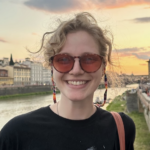
Elli holds a Bachelor of Art in Art History from Pomona College (2022) and she just recently finished her first year at Utrecht University’s master program in Ancient, Medieval, and Renaissance Studies. Her research interests lie in cross-cultural encounters and relations as they unfolded in the long seventeenth century in the Mediterranean basin. Elli, currently working on Greeks living in early modern Italian metropoles, hopes to work in the future on the intersection of women’s know-how, religion, and the urban setting.
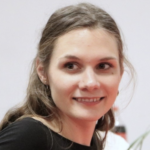
Chantal Maria Reissel earned her B.A. in European Studies (including Art History, Italian Studies, and Digital Humanities) in 2019 from the University of Passau and obtained her Master’s Degree in Art History at the University of Bonn in January 2023, with a thesis on the portraiture of the Florentine Renaissance artist Giuliano Bugiardini. During the course of her studies, she spent one semester each at Italian universities, namely the Università degli Studi di Perugia and the Università degli Studi di Roma ‘Tor Vergata’. From September 2021 to February 2022, she worked as a student assistant at the library of the Kunsthistorisches Institut (Max-Planck-Institut) in Florence. Currently, she is preparing a PhD project on the Florentine portraiture of the early Cinquecento, with a strong focus on questions of attribution and chronology.
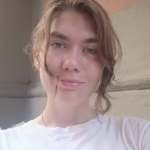
My Lundborg is a Library and Information Science Master’s student with a focus on digital libraries from Borås University in Sweden. She holds a Bachelor’s degree in Cultural Studies from Gothenburg University, where she wrote her Bachelor’s thesis on the working conditions of municipally funded artists. Special interests include ideological history and the accessibility and preservation of cultural heritage. My came into contact with the Medici Archive Project while researching the digitization process of the Avviso Project earlier in 2023. She is currently researching the language and format used for communicating news and plans to continue the research in her master’s thesis next year.
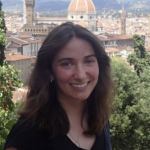
Holly Johnstone is a recent graduate from the University of Oxford where she completed her Master’s Degree in Early Modern History. Holly’s master’s thesis focused on the intersections of race-making, dress, and physical bodies in Cesare Vecellio’s 1598 costume book, De Gli Habiti Antichi et Moderni. She previously completed her undergraduate degree at the University of Toronto and hails from the Canadian Rockies.
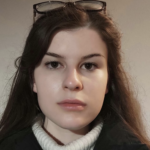
Kata Ispanovits is an international student at the University of Pisa. She is currently pursuing a bachelor’s degree in medieval history, and learning Italian as a foreign language. Her research interests center around 15th century Florence, specifically the histories of the Pazzi and Medici families and the causes and effects of the Pazzi Conspiracy.
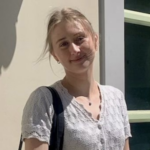
Chiara Campagnaro graduated from the University of Toronto in 2021 with a degree in History, Italian Studies, and Renaissance Studies. She is currently completing a Master’s in Art History, Curatorship, and Renaissance Culture at the Warburg Institute in London. Her research interests focus on early modern women, the history of the book trade, and Italian epics. Her master’s dissertation examines the collaborative nature of the printing press from the perspective of two Italian women printers in the sixteenth century, focusing on the intersection between work and gender. Chiara hopes to begin a meaningful career in education at a museum, gallery, or cultural heritage institution, combining her passion for teaching and history. She also hopes to pursue a PhD to continue her research on women in the book trade.
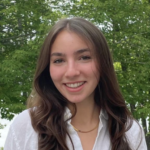
Alexa Moses is a senior at Trinity School in New York City. At MAP, she has worked to connect younger generations to the Avviso: Publishing The News that Made Us Modern Project through the creation of the avvisi website, student competitions, and the avvisi newsletters. Over the past few years, Alexa has founded The New York Classics Conference and has served as the President of the Trinity School Classics Club and the Editor-in-Chief of her school’s premier classics magazine. After seven years of Latin and three years of Greek, she is deeply interested in how the ancient and early modern periods connect to our current society.
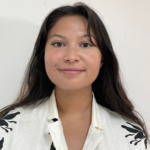
Danae Garza is a Bachelor student in Classics and Modern Languages at Royal Holloway University of London. This academic year she will be joining The Medici Archive Project where she will be serving as junior research fellow and intern’s coordinator for the Eugene Grant Jewish History Program
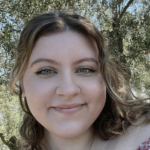
Aubrey Peterson, 2nd year History Major at UC Santa Barbara, studying Renaissance and Baroque art and history.
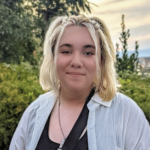
Bethanie Belisle is a third-year student at the University of Minnesota-Morris. She is triple majoring in Art History, Political Science, and Medieval Studies. In addition, she is a McNair Scholar preparing to attend graduate school in Art History discipline. Her focus is on the political influence of the dismantling of art through the centuries, concentrating on the Classical to Medieval eras.
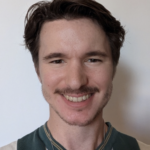
My name is Erik Zielinski and I study medieval history at the University of Minnesota Twin Cities. While my studies have broadly spanned over Europe, Africa, and Asia, I have always been fascinated by the Medici family and I am excited to have a chance to study them more closely.
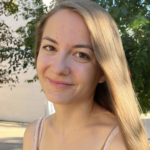
My name is Sára Kovács and I am a 3rd year undergraduate student at the Eötvös Loránd University of Budapest majoring in Italian Philology and minoring in Hungarian as a Foreign Language. Besides that, I am doing a double degree program which allows me to spend my final year at the University of Florence. My main interests are medieval literature and the Italian Renaissance, but I am also fond of languages too, whether ancient or modern ones.
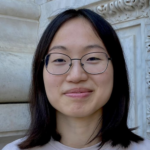
Wu Xiao is a Ph.D. student at École Pratique des Hautes Études in Paris. Her dissertation focuses on the hospital architecture in Renaissance Italy. She completed her BA in ancient Chinese architecture at Peking University and published an article on the reconstruction of Grotto 55’s antechamber at Mogao, Dunhuang. Xiao has worked in several cultural institutions in Beijing, Xinjiang, and Fujian in China.
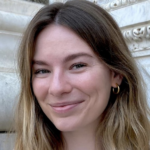
Kaylee Kelley is a first-year PhD student at Boston University focusing on cinquecento portraiture and material culture. Her Master’s thesis entitled ‘“Illustrious Through Her Own Virtues”: An Alternative Vision of Laura in Cinquecento Florentine Portraiture’ investigated the relationship between devotional objects and portraiture vis-á-vis contemporary literature. Prior to her PhD, Kaylee completed a Master’s at The Institute of Fine Arts and a Bachelor’s at the University of St Andrews, where she earned a joint honours degree in the History of Art and English Literature. She was recently awarded a humanities grant by NYU, which will fund her internship at MAP.
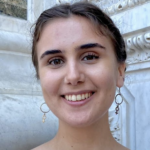
Daniela Graca holds a Bachelor of Music in musicology from the University of Ottawa (2022) and will begin her Master of Arts in musicology at McGill University this autumn. Her research centres around women in Italian Renaissance music with particular focus on music and the body and music in female homosocial settings. She was the 2022 recipient of the Anthony King Memorial Scholarship for her research about 16th-century musical feminism in the Florentine convent of La Crocetta and is currently a research assistant on Mapping the Musical Landscape of the 16th Century. Recently, Daniela was also awarded the SSHRC Canada Graduate Scholarship for her upcoming studies at McGill.
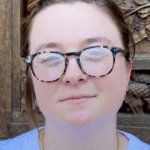
Georgina Rowley completed her undergraduate degree at the University of East Anglia, specialising in sixteenth-century Italian poetry. She wrote her third-year dissertation on the use of the Heroides as a mode of writing that offered courtesan-poets Veronica Franco and Tullia d’ Aragona a way of expressing their private aspirations publicly. Her interests include courtesans, women artists, matronage, and the studioli of Renaissance noblewomen. Georgina worked as a remote archive assistant with the Archives of the Jesuits in Britain for a year and then completed a six-week in-person placement. Over the last year, she has worked at the Norfolk Heritage Centre, cataloging ex-referenda and researching the collection of rare early modern books. Additionally, she gave a talk regarding her recent discovery of a medieval manuscript leaf. She will be beginning the MA in Art History, Renaissance Culture and Curatorship at the Warburg Institute in the autumn. Georgina will be working with Dr Sheila Barker at MAP to digitize Bronzini’s manuscripts at the Biblioteca Nazionale Centrale di Firenze and will search for archival material regarding the relationship between Leonora de’ Medici, Constanza Lenzi Gondi, and Lucrezia Quistelli.
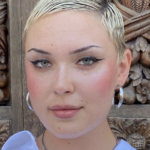
Sophie Jones is a senior at Smith College, where she majors in art history with a concentration in archival studies and a minor in Italian. She is interning with MAP after spending the semester studying in Florence. Her focus lies within religious/devotional art and its ties to gender in the Renaissance period, and she is also interested in historical costume. She is a board member of Citrus, Smith’s fashion magazine.

Anna Malgeri completed her BA and MA studies summa cum laude in history at the University of Florence in 2017 with a thesis on 18th-19th century Tuscany Jewry. She is a high school teacher and a poet. Her book of poems Abbracciami Israele was published in 2020. For more information about her see https://unifi.academia.edu/AnnaMalgeri.
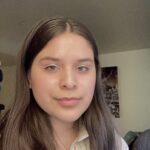
Zaida is a senior at the University of California, Santa Barbara pursuing a bachelor’s degree in History of Art & Architecture and a minor in Poverty, Inequality, and Social Justice. Previously, She interned with the Brooklyn Museum, and through The Association of Research Institutes in Art History, interned for the Metropolitan Museum of Art, the Canadian Center for Architecture, The Clark Art Institute, and the Yale Center for British Art. Currently, she is studying art and photography in Florence while also interning with the Medici Archive Project

Swetha Ganeshkumar is a junior at the University of Minnesota majoring in Finance and minoring in Business Analytics at the Carlson School of Management. She is from Minnesota and is studying abroad in Florence for one semester. In her free time, she is involved with her business fraternity Delta Sigma Pi and an organization called THRIVE.
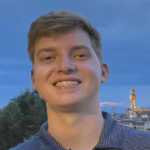
Noah Dasinger is currently a second-year master’s student at the University of Georgia, where he studies early Renaissance sculpture and the Medici. He joined the Medici Archive Project in June of 2021, where he worked alongside the director Dr. Alessio Assonitis. His duties included transcription, indexing, and cataloging documents uploaded onto MIA. His thesis entitled “Symbolic Epigraphy and the New Rome: Humanist Capitals on the Tomb of Leonardo Bruni” will address the connections between the revival of antique-styled Latin epigraphy and the growing influence of Romanesque manuscripts on the writings of Leonardo Bruni and the inscriptions Bernardo Rossellino. His work will shed light on the peculiarities of quattrocento epigraphy, addressing their semiclassical appearance, as opposed to their direction imitation of antique letterforms.
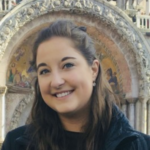
Alison Holdsworth is currently pursuing a Master of Arts in Art History at American University in Washington, DC. She joined the Medici Archive Project in January of 2021, where she worked alongside a team of fellow graduate students for Dr. Gabriele Mancuso within the Eugene Grant Jewish History Program. Their tasks included collecting and cataloguing images and objects for an upcoming exhibition at the Uffizi Gallery in Florence, Italy. Most recently, Alison has also accepted a position to intern for Dr. Sheila Barker at MAP within the Jane Fortune Research Program on Women Artists. Alison’s own interests involve the work of women artists of the Italian Renaissance, material culture of the period, and somaesthetics. Her thesis focuses on Northern Italian portraits of women (1480-1600) and the evocation of the sense of touch to suggest female agency in those works. She had the wonderful opportunity to travel to Italy this summer for thesis research after being awarded the Carol Bird Ravenal Travel Award in Art History as well as a College of Arts and Sciences Student Research Award by faculty at American University.
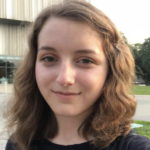
Olivia Marcum is a senior at Centre College, double majoring in Art History and Studio Art with a concentration in oil painting. She has been awarded the J. Graham Brown Fellowship from Centre (her undergraduate institution). Her research interests include the activities and social contexts of early modern women in Europe, and the lives and works of early modern female painters. She is currently researching the studio practice of Artemisia Gentileschi in Florence. Next year, she will begin a year-long position as a research intern under Dr. Sheila Barker.
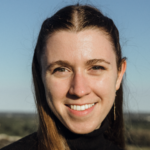
Katherine Rabogliatti is an Art History Masters student at Syracuse University. Her interests include women writers and artists in early modern Italy, with a particular focus on the life and work of Sofonisba Anguissola. She is currently researching Sofonisba’s time in Spain and later life, concentrating on the artist’s social circle at the Spanish court and how these relationships helped her gain international recognition. Katherine has been awarded the Chandler-Ott Fellowship from her undergraduate institution, Wellesley College, and the Florence Art History Fellowship from Syracuse University, both of which will fund her graduate studies.
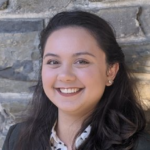
Christine Staton is a recent graduate of Syracuse University’s master’s program in Italian Renaissance art. Her program included a year-long residency in Florence where she first encountered the Medici Archive Project. Christine’s thesis, “The Nectanebo Lions on the Fontana dell’Acqua Felice: Egyptian Revival in the Rome of Sixtus V,” studied two Egyptian antiquities in Rome as a part of the Egyptian Revival during the Renaissance. She hopes to continue this work in a Ph.D. program. Christine has worked in several art museums and research institutions, including the Philadelphia Museum of Art, the Medici Archive Project, and the Istituto Nazionale di Studi sul Rinascimento. Christine is a regular speaker and author for the Coalition of Master’s Scholars on Material Culture.
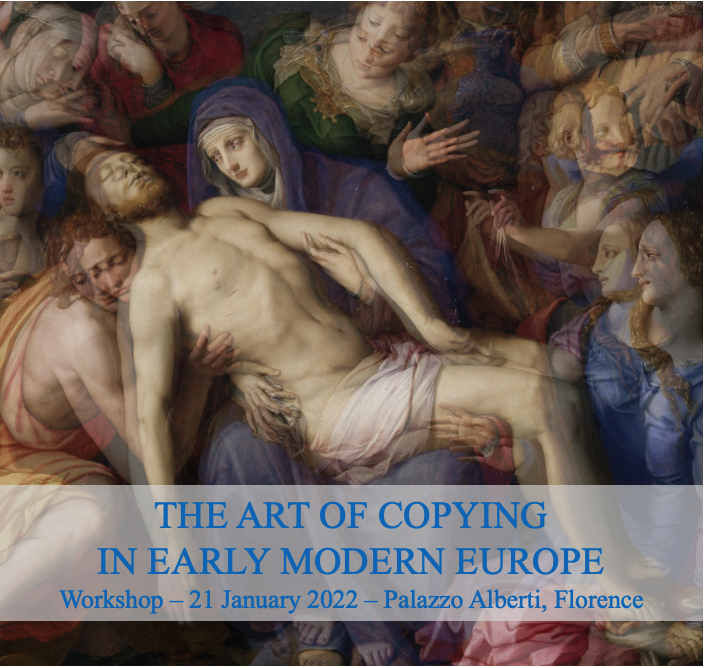
21 January 2022 – Palazzo Alberti
The Art of Copying in Early Modern Europe
WORKSHOP
Davide Boerio (Euronews Project, University College Cork)
Copying News and Coping with Information in the Early Modern Period. Archival Traces from Florence
Marta Ajmar (V&A Research Institute)
‘Copying’ Trans-Materially: Mimetic Earthenware and Cross-Technological Knowledge in Renaissance Italy
Bar Leshem (Negev University)
Transmedia Copying from Two-Dimensional Imagery to Cinquecento Carved Cassoni
Erin Giffin, (I Tatti, Harvard University)
“Violence and Votives: Recreating the Scratches, Fissures, and Detritus of Early Modern Sacred Imagery”
Marlise Rijks (Ghent University)
The Barbé Affair. Copying, Intellectual Property, and Printmaking as the First Modern Industry
Maria Pietrogiovanna (Padua University)
Compose and Copy to Glorify the Masters: The case of Anthony van Dyck and Titian
Sophie Suykens (Ghent University)
“Compertimenten ghemaeckt tot dienste van alle”: Creation and Application of Printed Frames in the Early Modern Period
Agnieszka Wiatrzyk (The Polish Library in Paris)
All Roads Lead to Rome. On Drawn and Copied Illustrations for Roman Guidebooks by G. A. Dosio and G. B. Naldini
Rebecca Arnheim (Boston University)
Inked Likenesses: An Album of Portrait Copies at Palazzo Pitti
Dániel Margócsy (Cambridge University)
Jacques Le Moyne de Morgues (ca. 1533-1588) and Picturing Plants in the Sixteenth Century
Shannah Rose (Institute of Fine Arts, NY University)
(Re)Mediating Illustrated Manuscripts between Colonial Mexico and Early Modern Rome
Alana O’Brien (La Trobe University)
Copying Andrea Del Sarto, pittore “senza errori”; Reproductive Prints in the Sixteenth and Early Seventeenth Centuries
THE ART OF COPYING IN EARLY MODERN EUROPE
In recent years, attention has been directed towards copies, with a particular emphasis on their meaning, function, provenance, production, patronage, collecting and dating. The aesthetic and conceptual tenets underlying this corpus of scholarly research focused primarily on works of art. However, this impulse to recreate images has also been transferred to other artistic and intellectual media. As such, the copy carries within itself a great number of intrinsic nuances, depending on the cultural context and the historical moment. The organizers of this workshop (Maddalena Bellavitis and Alessio Assonitis) invite papers that address issues that can shed new light and provide new interdisciplinary research trajectories on the mechanisms that regulate the practice and reception of copies. For this reason, we encourage submission for presentation proposals from disciplines such as book history, media history, history of science, history of medicine, history of food and history of diplomacy.
To be considered for participation, please provide a single document in Microsoft Word, consisting of a one-page proposal for a 20-minute presentation of unpublished work, followed by a short curriculum vitae. Presentations can be in Italian or English. Applications may be sent to education@medici.org by 1 October 2021 (participants will be notified in mid-October).
Early Modern Greek Culture
The profound impact of ancient Greek culture on the construction of Humanist discourse in Quattrocento Florence has been the topic of intense scrutiny and research. The Medici—from Cosimo the Elder to Lorenzo the Magnificent—played a crucial role in pioneering this cultural and intellectual efflorescence, especially in the aftermath of the Fall of Constantinople in 1453. Byzantine luminaries, such as Ioannes Argyropoulos, Demetrios Chalkokondyles, and Janus Laskaris—just to name a few—contributed to the evolution of Neoplatonic philosophy in Florence and, as such, they helped shape the European intellectual tradition. Comparatively less effort, however, has been devoted to the study of the Greeks and Greek culture in sixteenth- and seventeenth-century Tuscany, especially in comparison to scholarship on Greeks in Venice, Rome, and Naples. The Medici archives (particularly the Mediceo del Principato and the Miscellanea Medicea) comprise copious information on Greeks, not only in Tuscany but also in the Southern Mediterranean, Nothern Europe, the Balkan region, and, most importantly, the Ottoman Levant. News about Greek communities and their mercantile activities appear frequently in the correspondence, dispatches, and reports of Florentine ambassadors posted in those regions. Additionally, there are substantial records about the relations between “Tuscan Greeks” and the vast networks of Greek communities, especially across the Eastern Mediterranean.
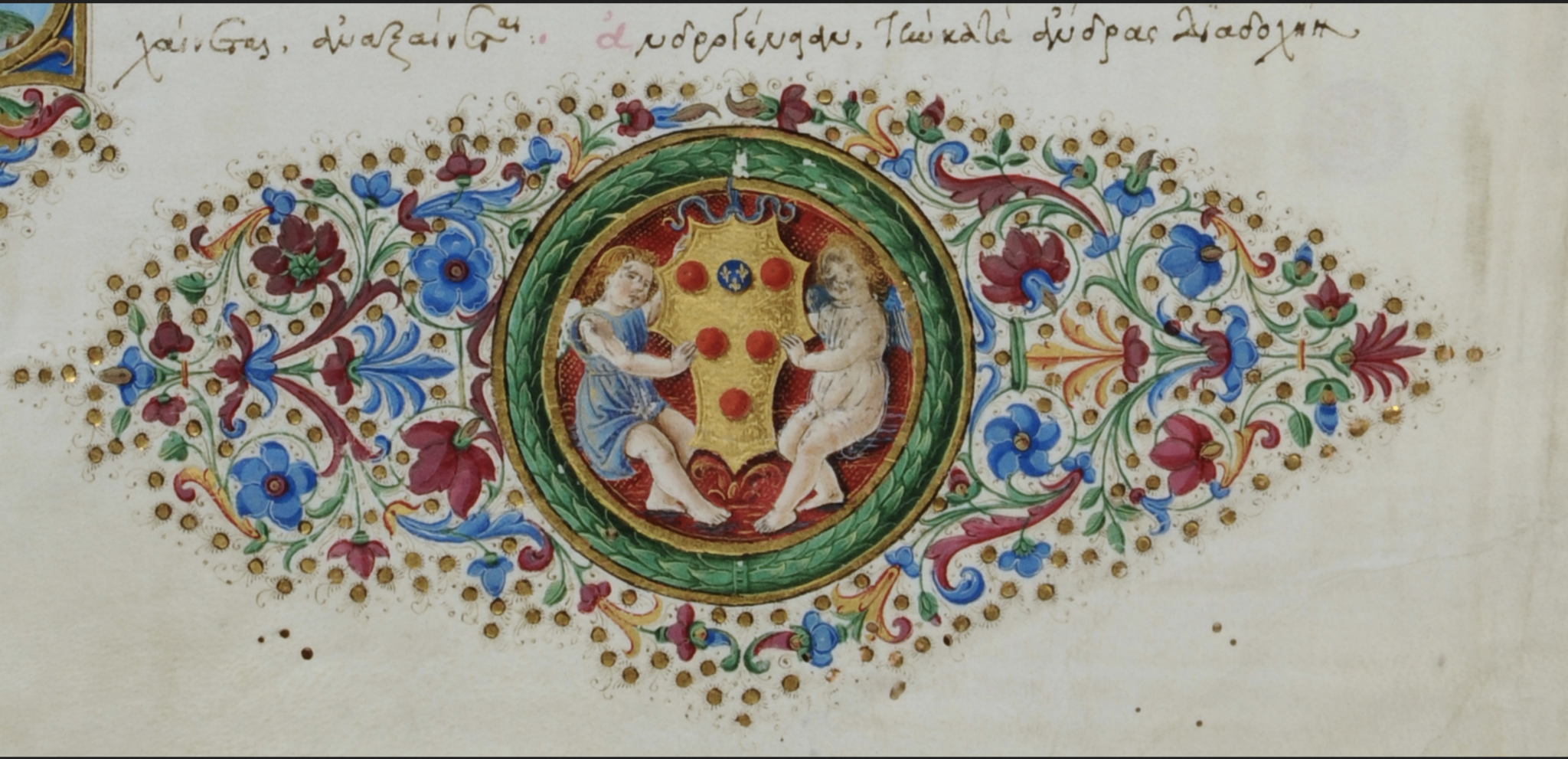
The aim of this program will be to uncover new sources and documentary evidence about the presence and activities of Greek communities in early modern Tuscany and to chart their networks in Italy and Europe. Another key objective of the program will be to shed new light on the factors that contributed to the formation of Greek identity. The program will explore synergies with other programs at MAP and other research and teaching institutions worldwide. Its ultimate objective will be to delineate new avenues for research into the Greek identity and diaspora and illuminate the background of the “Modern Greek Enlightenment” (1700s-1800s).
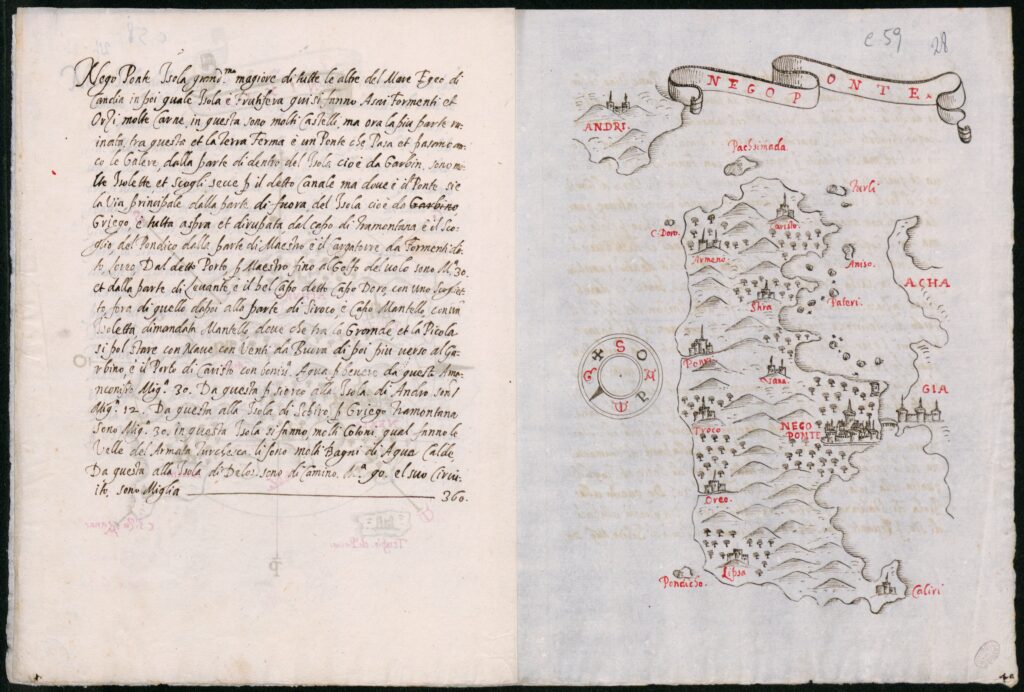
The activities of the program will include: publications and critical editions of archival records, conferences, workshops, and exhibitions. The program will also sponsor fellowships for pre-docs and visiting scholars related to the following themes:
- The post–1453 Greek Diaspora in Italy
- Greek Communities in the Mediterranean and their relations with the Medici
- Mercantile activities
- Religious discourse
- The evolution and preservation of Greek koinē (language)
- The preservation of ancient Greek culture
- Italian perceptions of early modern Greeks and Greece
- Greeks as purveyors of news from the Ottoman Levant
STAFF
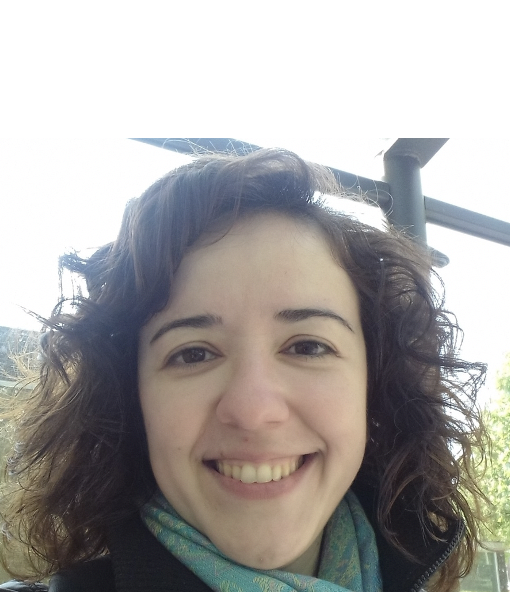
Evi Zacharia
Publications Manager
Evi Zacharia is currently a Ph.D. candidate of Philosophy at the Faculty of Philosophy, Theology and Religious Studies at Radboud University Nijmegen (title of Ph.D thesis: “On Soloviev’s View of the Relation between Sophia and Love.” Her research interests converge at the history of paganism, Christianity, Russian Philosophy, German Idealism, and Philosophy of Religion (especially Christian and Kabalistic mysticism). Her articles have been published in international peer-reviewed journals (Czech and Slovak Journal of Humanities, Dia-noesis, and Discoursal Text).
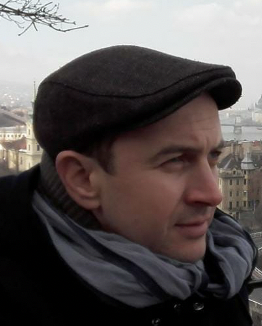
Nikolaos Kyfonidis
Senior Communications Liaison – Greece and Cyprus
B.A. University of Stirling, MSc Göteborgs Universitet
Nikolaos has extensive international experience spanning over the past eleven years in the fields of politics and migration. Work experience in the Greek Mission to the EU in Brussels gave Nikolaos the opportunity to collaborate with various EU bodies and institutions. This was followed by a stage at the Embassy of Greece in Tokyo, Japan.
After returning to Greece, Nikolaos worked as a Junior Researcher for a UN University project on migration and then moved to field operations. He was among the first coordinators through the International Organization for Migration (IOM-UN) to handle migration flows to Greece.
He has worked with various organizations, including the Norwegian Capacity/Norwegian Refugee Council (NORCAP/NRC), the World Federation of United Nations Associations (WFUNA), and the European Asylum Support Office (EASO). Nikolaos participated in the International Visitor Leadership Program of the U.S. Department of State in Washington, Arizona, and Minnesota regarding resettlement and integration.
Meet the Friends of the Medici Archive Project

* An asterisk denotes 2 years of membership, and our redoubled gratitude
Serenissimi
Elizabeth A. Fama*
in memory of Eric W. and Lydia G. Cochrane
Robert Goodkind
Patres Patriae
Drs. George and Naomi Gorse*
Jonathan and Barbara File
Gaily Wurtzel and John Beinecke
American Friends of Attingham in honor of Dr. Sheila ffolliott
Amici
Carol Green*
Dr. Ian Verstegen*
Dr. Annemarie Jordan
Dr. Linda K. Williams
Aurora Corona*
Dr. Wei Jiang
Dr. Margaret Davis*
Dr. Sarah Tyacke
Eileen R. Catalan*
Rosina Catalan*
John and Melissa Terry
Dr. Evelyn Lincoln
Jane Zaloga
Rosa Paz
Camille Heaton
Valerie Ward*
Joy M. Onyejiako
Dr. John T. Spike
Dr. Negar Rokhgar
Carolyn Abney*
Betsy Wolf*
Simon Abrahams
Dr. Peter Bourdillon
Gayle Loving
Glenys Adams
Laura Kramer
Dr. Judith W. Mann
Susan Bandes
Dr. Alicia Ostriker
Dr. Lorenzo Vigotti
Lorenzo Allori
Sonia Molteni
Catherine Hommes*
Kate MacCarthy
Dr. David Essex
Dr. Jean Cadogan
Dr. Felicia Else
Carll Tucker
Dr. Brian Sandberg
Dr. Carla D’Arista
Alice Vogler
Mark Spyropoulos
Jane Battaglia*
Kristina Yang*
Christine Hughes
Dr. Aimee Ng
Merribel Ayres
Dr. Natalie Tomas*
Ioulia Dymtchenko
Chryssoula Filippakopoulos
Dr. Tamar Herzig
Dr. Nicholas Brownlees
Dr. Linda Wolk-Simon*
Anne Cripps
Tony Bozanich*
Rita Ashley
Laura Cirri
Christie Weiss
Frances Prenn
Dr. Paolo Pucci
Isabella Holland
Dr. David Drogin
Dr. Shelley Zuraw*
Jojo Hull
Dr. Annachiara Mariani
Serena Barbetta
Dr. Philip Mansel
Steven Alan Bennett
Dr. Elaine Melotti Schmidt
Lisa Cesarano
Stephie Yoon
Paola Palladino
Ingeborg Kleine-Renfordt
Svetlana Atlavina
C. Richard Mathews
Guy Oliver
Elizabeth Hight
Dr. Beth Glixon
Dr. Rivka Fishman
Greg Fisher
Laura Martin
Claudia Dias
Carl F. Hughes
Lucia Lazic
Stacey Bowie
Shala Ball*
Dr. Mary Young
Dr. Rosamond Mack
Dr. Trinita Kennedy
Dr. Yvonne Elet
Dr. Michelle O’Malley
Sylvia Soler*
Dr. William J. Connell
Dr. Mary D. Garrard
Dr. Babette Bohn
Dr. Sarah McPhee
Dr. Elizabeth Pilliod
Dr. Alison Luchs
Mary Berdan
Joyce Hoffman*
Dianne Bruno*
Patricia Rocco*
Mary H. Bourne
Valerie Thaler
Dr. James Dotson
Dr. Samer Hassan
Dr. Johanna Vernqvist*
Maria Carolina Pope
Dr. Robin O’Bryan
Dr. Gretchen Hirschauer
Julie James
Dr. Patricia McCobb
Tiffany Jansen
Dr. Linda Pellecchia
Dr. David Stone
Dr. Suzanne R. Boorsch*
Jericho Knight*
Dr. Beth Holman
Dr. Susanne Roberts*
Dr. Claudia Lazzaro
Ilene Schechter*
Miriam Kagan
Emma Ladanza
Dr. Martin Kemp
Dr. Peter Howard
Dr. André Belo
Dr. Erin Giffin
Suzie Provo
Shannon Ward
Natalja Schmidt
Milana Tolins
Jocelyne DeNunzio
Dr Lisandra Estevez
Elena Guseva
Dr. Dennis Geronimus
Dr. Catherine Puglisi
Dr. Alexander Röstel
Angharad Yeo
Dr. Rebecca Manning
Dr. Roberta Olson
Nora Lambert
The George. R. Vartorella Disruptive Technologies Foundation, Inc.
Georgina Watson
Carla Oberto
Dr. Gerry Milligan
Bastian Eclercy
Dr. Marilyn Gasparini
Dr. Nicholas Davidson
Dr. Kim Hays
Dr. Sarah McHam
Dr. Catherine Turrill-Lupi
Reshman Persaud
Familiares
Pigi Sakellaropoulou
Łukasz Hajdrych
Dr. Cecilia Gamberini
Dr. Kate Lowe
Dr. Jesse Locker
Dr. Ella Kilgallon
Jim and Glenda Barker
Vianna Newman Dennis
Dr. Catherine Vanderpool*
Dr. Adelina Modesti
Merianne Timko
Cassie Fast
Madison Clyburn
Heather N. Smith
Rose Byfleet
Filip Moerman*
Noah Dasinger
Katie Rabogliatti
Dr. Davide Boerio
Claire Litt
Dr. Howard Coutts
Dr. Lana Martysheva
Dr. Corey Tazzara
Dr. Thea Stevens
Nicole Sobolewski
Dr. Agnieszka Wiatrzyk
Bennett Harrison
Aoife Cosgrove
Anna Cruse
Julie Timte
Eynav Ovadia
Massoumeh Safinia
Louise Reeds
Alisala Nunes
Irene Kukota
Sorcha Ní Lideadha
Eynav Ovadia
Dr. William Barcham
Mallory Haselberger
Dr. Ted Hanf
Dr. Lorraine Karafel
Dr. Simone Testa
Dr. Jennifer Sliwka
Jean Oelrich
Tony Cui
Dr. Carlo Falciani
Dr. Janis Bell
Dr. Stephen J. Campbell
Dr. Carol Richardson
Dr. Anthony Russell
Dr. Kirstin Noreen
Dr. Ethan Kavaler
Dr. Rebekah Compton
Dr. Thomas Golsenne
Dr. Elizabeth Currie
Dr. Timothy McCall
Dr. Sheryl Reiss
David Leventhal

Medici Center Shanghai
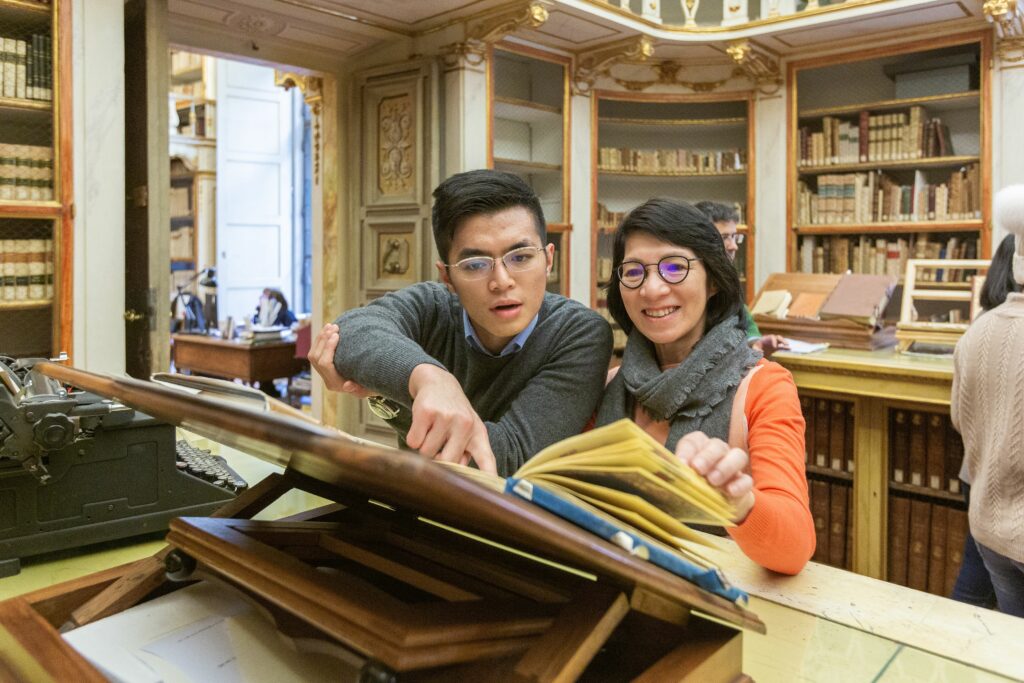
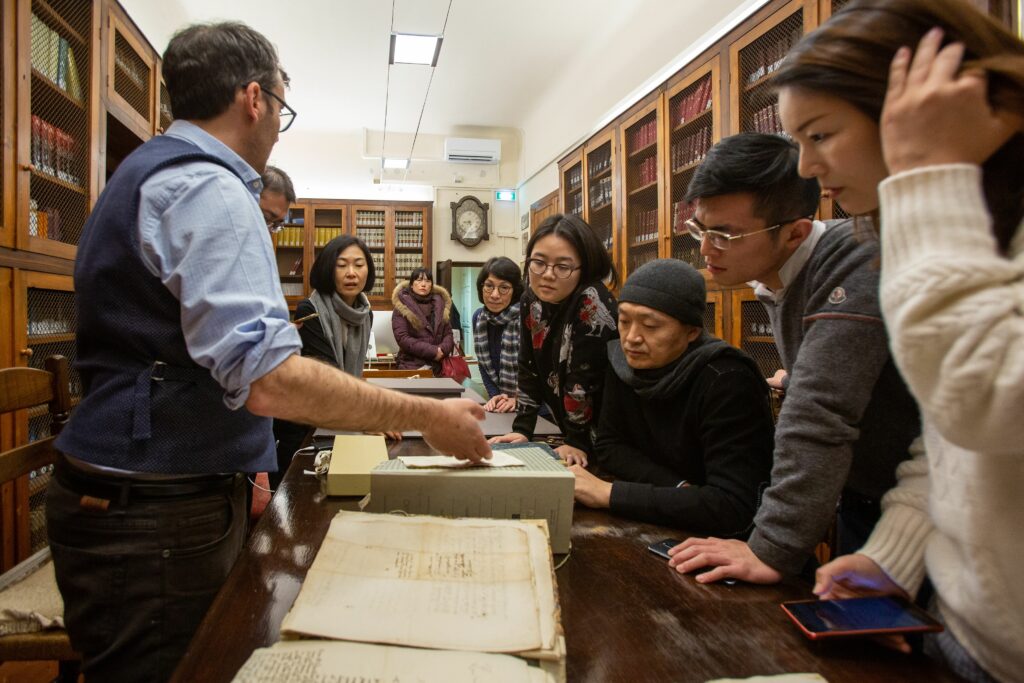
A Distinct Identity
The Medici Center Shanghai (MeCS) hopes to become China’s premier Renaissance research institute, whose aim is to fund original scholarship and inspire a deeper interest of Italian Renaissance culture in China through events, research and teaching. MeCS will serve both scholars and non-academics, acting as a hub for Renaissance studies in China. Crucially, the center provides important links with Western scholarship through its relationship with the Medici Archive Project, a core part of which will be the opportunity to attend an advanced archival study program in Florence.
An Overview
MeCS will provide an in-depth education for students, aspiring academics and interested professionals offering a curriculum covering the contextual history of this period and providing training in the key skills needed to undertake scholarly research.
The institute will have access to Renaissance primary sources (volumes and manuscripts) for research allowing its students the unique opportunity of learning first hand from original sources whilst in China.
It will operate as a hub for both Renaissance scholars and enthusiasts in China.
Crucially it will provide important links with western scholarship through the work of the Medici Archive Project in Florence, a core part of which will be the opportunity to attend the advanced archival studies course in Florence.
Mission: To inspire a deeper interest in the understanding of Renaissance history and Italian culture in China through research and teaching.
Vision: To be the first and most prestigious research and teaching center focused on Renaissance Studies in China.
Teaching Aims
The core of our work in Shanghai will focus on delivering a number of courses a year providing preparatory training for Chinese scholars, students and professionals for their research and/or further learning prior to attending the advanced courses and/or “on-site” learning in Florence. Through this intense two week combined course (half in Shanghai, half in Florence) they will receive a good first-hand training in Italian Renaissance culture. As alumni of both MAP Florence and the MeCS, we hope to maintain connected with students for future programs.
Research Activity
MeCS will become the main research center for Renaissance Studies in China, hosting lecture series, seminars and exhibitions, providing opportunities for engaging discourse and encouraging its students to collaborate on and share research.
Contact
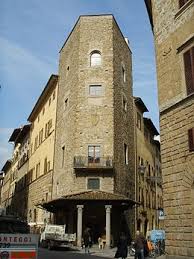
The Medici Archive Project Inc. has Federal 501(c)(3) tax-exempt status in the United States, and is fully recognized in Italy by “presa d’atto” of the Prefettura di Firenze (prot. n. 10445/04 P.G. area V).
The Medici Archive Project Project is headquartered at 175 W. Main Street (Suite 2) Babylon, NY 11702.
The Italian office is located at via de’ Benci 10, Florence, 50122.
For more information or any other query, please contact education@medici.org.
Medicine in Early Modern Italy: Between Theory and Practice, 1500-1700
Limited seating available. You will not be admitted to the conference hall without a reservation. Green Pass and masks are mandatory. To add your name on the waiting list contact: education@medici.org
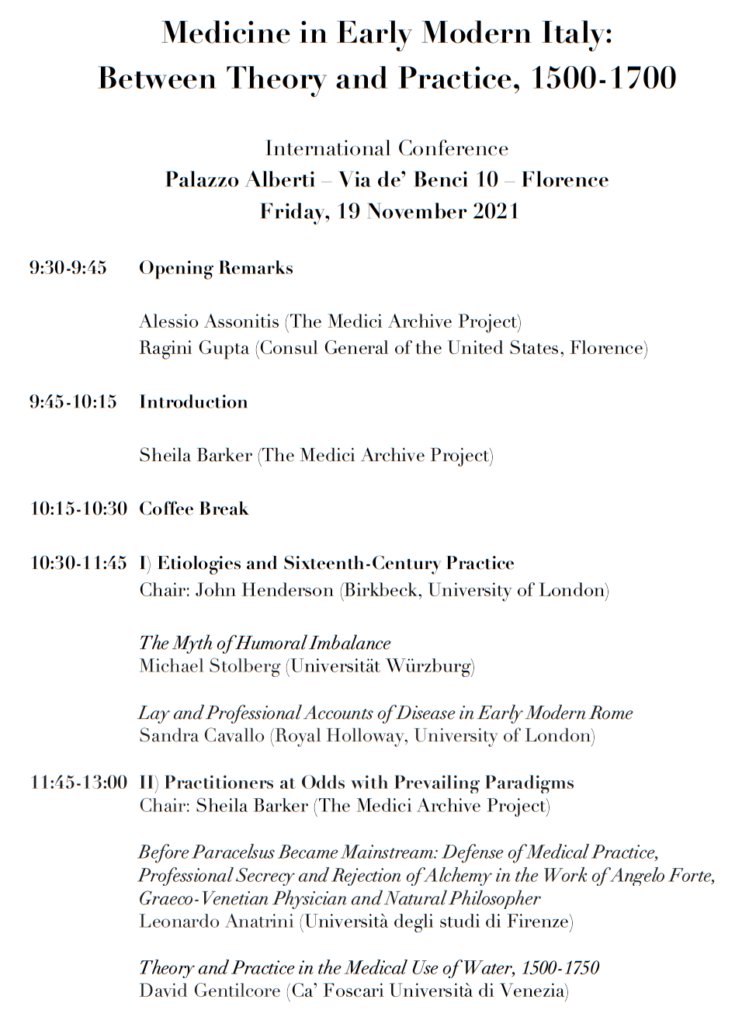
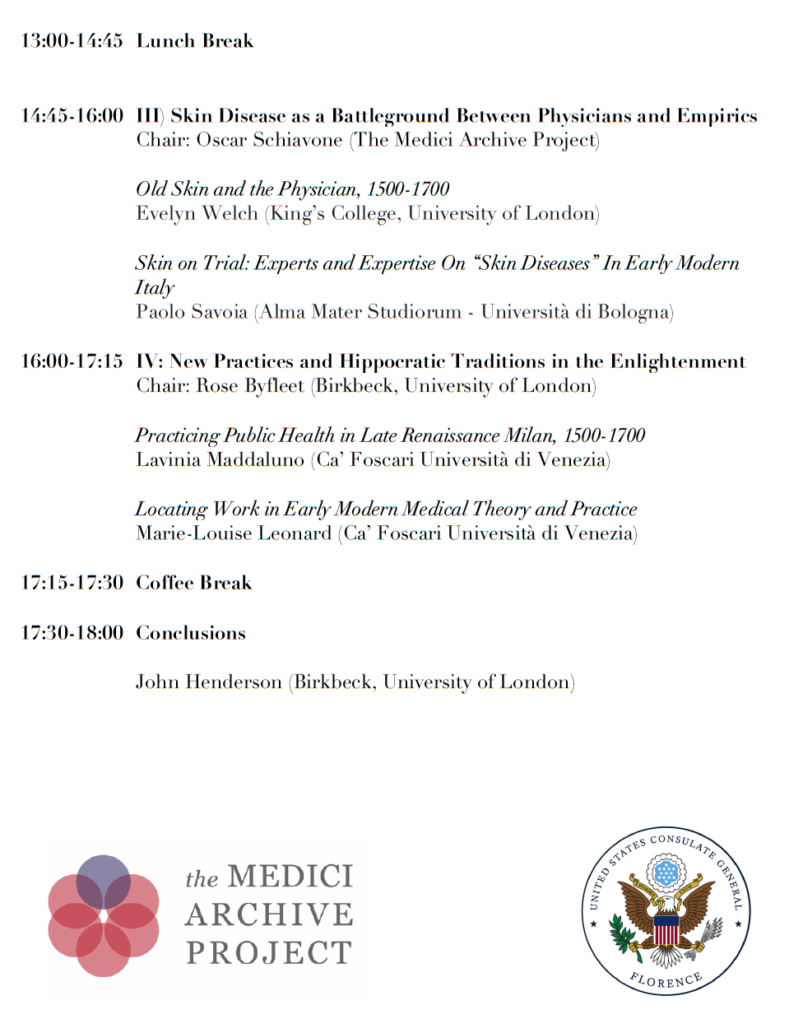
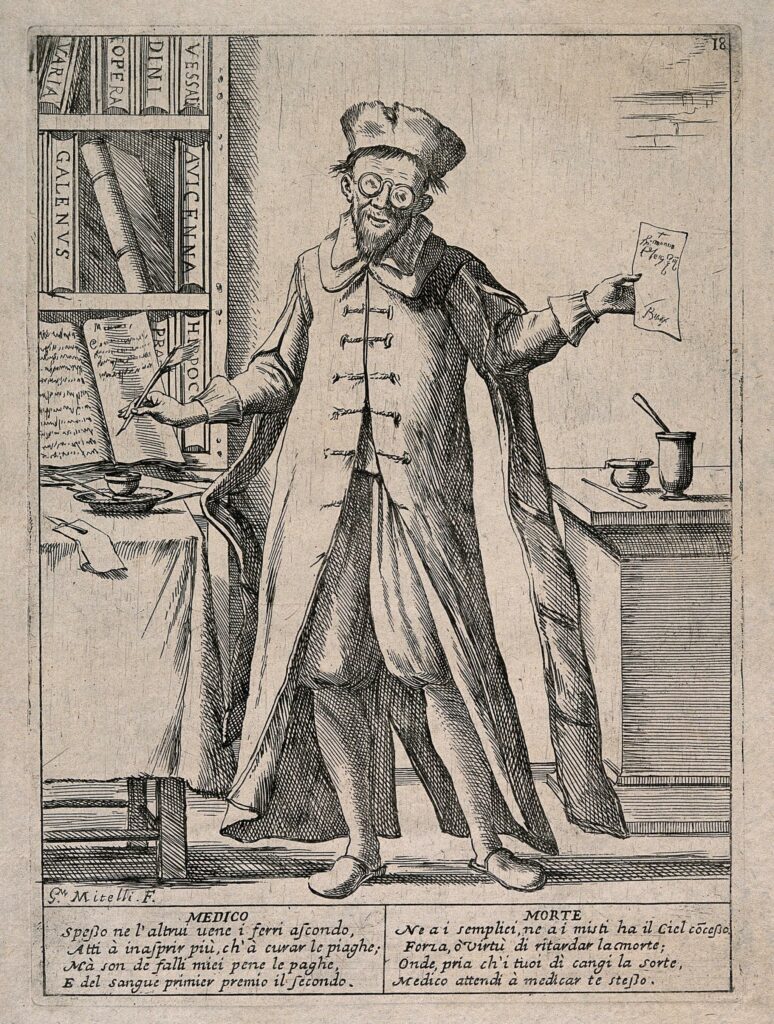
MEDICINE IN EARLY MODERN ITALY: BETWEEN THEORY AND PRACTICE, 1500-1700
Friday, 19 November 2021
The Medici Archive Project – Palazzo Alberti – Florence
Traditionally, the history of medicine in early modern Italy was a field divided sharply into the study of theory and the study of practice, yet this separation was neither equal nor historically justified. Whereas serious attention was given early on to the intellectual foundations of the discipline, far less attention was directed to the consideration of how and when this body of knowledge was translated into practical expressions such as recipes, cures, procedures, and public measures (and vice-versa). A corrective to this imbalance has emerged in the past decades, with scholars adopting, for instance, patient-centered perspectives an exploration of the role of the body, emotions and gender, and the full range of formal and informal practitioners. Further opportunities for understanding the practice of medicine have arisen whenever historians of medicine have engaged with other disciplines, including art and architectural history, religious studies, environmental history, book history, and economic history.
The aim of this conference is to redress the historiographic bifurcation of studies of medical theory and studies of medical practice. We seek papers that reveal the entangled interrelationship between these two realms in a period that was characterized by the rise of empirical experimentation, as well as the growing need to incorporate novel drugs and unfamiliar diseases into the hoary paradigms of professional medicine. The following are examples of the questions that animate interest in this topic: Did physicians’ casebooks make reference to either the utility and/or limitations of medical theory? In what contexts do we encounter recipes that indicate implementation and modification of a theory, such as Galenic humoral medicine or Paracelsian iatrochemistry? What were the challenges and impact on theory and practice of the importation of new medicines through the growth in global trade? What consequences did the academic debate around the influence of Arabic writings have for medical practice? To what degree did an understanding of medical theory matter in the licensing of apothecaries? With the emergence of the printing industry, did the tension between practice and theory expand or shrink? Did prevailing medical theories facilitate or hamper the integration of new discoveries in anatomy and medical botany into the physician’s practice? To what degree was penning a theoretical treatise a catalyst to a lucrative career as a court physician? Did empiricists and quacks ever find it beneficial to adopt the language and concepts of medical theory? Did religious reforms make their impact felt differently in theory versus practice? To what degree could a prince-practitioner eschew theory yet maintain credibility in elite circles?
